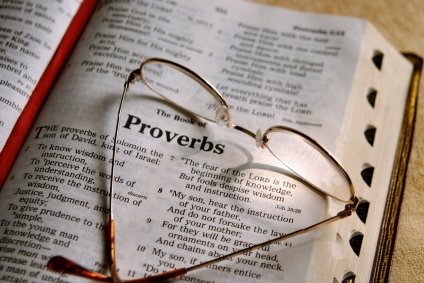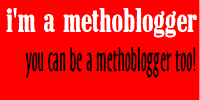I’m grateful to Michael Halcomb for putting me on to this hilarious video. But it does give one occasion to pause. In 50 years, will my son be able to “check out” a copy of my most recent posting? If our blogs are so ephemeral, and if our reading skills are so elusive, where does that leave us?
Saturday, July 28, 2007
Tuesday, July 24, 2007
Evening Prayer

God our Guardian and our Guide
(An Evening Prayer)
God our Guardian and our Guide
Shatter all our selfish pride.
Pray, redeem us, recreate us
For the coming day.
Rule of Justice, Christ - our Life
Heal our warfare, quiet our strife.
Pray, redeem us, recreate us
For the coming day.
Sign of Mercy, Christ - our Way
Cleanse our hearts, our fears allay.
Pray, redeem us, recreate us
For the coming day.
Source of Wisdom, Christ - our Light
Lead us through the darkest night.
Pray, redeem us, recreate us
For the coming day.
God our Guardian and our Guide
Shatter all our selfish pride
Pray, redeem us, recreate us
For the coming day.
Hymn Words: John Montgomery
7.7.8.5
© October 2004
Used by Permission: Imagine Golf
Friday, July 13, 2007
Noun or Adjective? That is the Question!
 The late Wilfred Cantwell Smith suggested that to talk about someone as a Buddhist, rather than as Buddhist misconstrues what faith is about. It flunks English grammar as well. Christian is not a noun (i.e. a Christian), but an adjective (i.e. a Christian person). In that context, I could perhaps be both Buddhist and Christian. So does that get me into heaven and kicked out at the same time? My Evangelical colleagues want to know.
The late Wilfred Cantwell Smith suggested that to talk about someone as a Buddhist, rather than as Buddhist misconstrues what faith is about. It flunks English grammar as well. Christian is not a noun (i.e. a Christian), but an adjective (i.e. a Christian person). In that context, I could perhaps be both Buddhist and Christian. So does that get me into heaven and kicked out at the same time? My Evangelical colleagues want to know.John Cobb suggested that perhaps the great religious traditions were not different answers to the same questions, but different answers to different questions.
I like to think that I am both Christian and Buddhist - maybe with a little Jewishness added as well. I wish both Agape and Compassion to you and yours!
John
Photo Used With Permission: blindelinse
Thursday, July 12, 2007
Hindu in the House

Tom, (Freidman) I don't know whether the world is flat, but I do know we live in an interfaith world.
Actually, it was not the house, but the Senate! Chaplain Rajan Zed, North Nevada Hindu Association led a prayer that was supposed to be a testament to inclusiveness in America, not intolerance from narrow minded believers. Three fundamentalist adherents were arrested after disrupting the session repeatedly shouting
Of course, the abomination is the sheer hatred masquerading as genuine faith. Now interfaith relations are tricky - we need a lot of dialogue and as Methodist theologian, John B. Cobb Jr. suggests an openness to mutual transformation. We are still making baby steps here - Thomas Thangaraj, professor at Emory, suggests that we need to still draw distinctions between "praying together" as in sharing together in one prayer, and "being "together for prayer" where we all join together to pray according to our own faith traditions.“Lord Jesus, forgive us father for allowing a prayer of the wicked, which is an abomination in your sight,” the first protester began.
“This is an abomination,” he continued. “We shall have no other gods before You.”
What is most troubling to me about the narrow-minded Christians who are convinced that only through Jesus can anyone be saved, and therefore they are ready to condemn even righteous folks in other traditions. They are also proponents within Christianity of a narrow-minded perspective where only by believing their fundamentalist or evangelical theological persuasion fellow Christians might be saved as well.
In the "What Others are Saying" section on the left column of this blog, you can find two pertinent reports.
Aaron Krager's post from Faithfully Liberal - "Christian Fundamentalists Disrupt Hindu Prayer"
Don Byrd's post from Talk to Action - "US Senate Opens with Hindu Prayer, Confuses David Barton"
Speaking of prayer....
God, you who created life with all of its diversity (and said that it it good!) - save us from religious bigotry.
Amen,
John
Photo Note: http://www.cnsnews.com/ViewCulture.asp?Page=/Culture/archive/200706/CUL20070626a.html
Sunday, July 8, 2007
The Religious Landscape is Changing!

Tom, (Friedman) - I don't know whether the "world is flat," but I do know that we live in an interfaith age. Our urban landscapes are changing. Here in Atlanta (yes, I did say Atlanta, not in the suburbs!) the place to be is the new multi-use high rise development called Atlantic Station. Stores, offices, restaurants, dog walking paths, apartments, homes, condos - and oh yes, parking. It's all there - built over the last few years on the abandoned Atlanta Steel site just north of Georgia Tech.
If your penthouse faces south toward 14th Street, you get a picture window view of the latest change in American urban religious architecture. It's a steeple...oops, no - it's a minaret. Copper domes and arabesque walls built in octagonal fashion so the mosque can both face the East and align with the mid-town city streets.
Friends, welcome to the neighborhood!
Photo Note: Atlanta Journal Constitution - July 5, 2007
Saturday, July 7, 2007
The Globe is a Village - The Village is the Globe!

Tom, I don't know whether the "world is flat!" But there is no argument that we live in an interfaith world. In the late 80s, before our family moved down to Georgia from Illinois, I had the privilege of meeting with some folks who would eventually become the local steering committee for the 100 year anniversary of the Parliament of World Religions. This watershed event was first held in conjunction with the Chicago Columbian Exposition in 1893. While it was primarily a Christian event, religious leaders from most of the world's great faith traditions were invited to participate and lots of money and complex logistics brought these folks from all corners of the world. In anticipation of similar participation in the centennial event, the question was asked whether we would have to go around the globe again in order insure diversity. In fact, it became quickly clear that, we would only have to go down the block! In the late 70s, the watchword was "the globe is a village" highlighting emerging economic and political interdependence. Moving into the 21st Century, perhaps our watchword should be, "the village is the globe." Pictured above is the soon to be opened Shri Swaminarayan Mandir, a Hindu temple, located in suburban Lilburn, Georgia. I pass the site on my way to the local swim center, a trip I often make. The temple shares an intersection with a Publix supermarket and a Walgreens pharmacy. 900 regular members anticipate being joined on festival days by 6,000 worshipers who flock here from the larger Atlanta metropolitan region.
Photo Note: Atlanta Journal Constitution - July 5, 2007
Tuesday, July 3, 2007
Bible Study in an Interfaith Age

Last week, in conjunction with the remarkable exhibit here in Atlanta, Cradle of Christianity at the Carlos Museum at Emory University, Bruce Feiler pushed hard for the broad recovery of Bible study suggesting that the Bible itself is the most direct answer to those extremists who would make the Bible a weapon for their ideological wars.
In the same vein, I am particulary interested in how we might focus Bible reflections in our local congregations such that our study forms us to more readily participate in the witness and dialogue between diverse faith groups in our communities. Let me suggest the following:
Guidelines for Individual and Congregational Study of Scripture
Celebrating the Textual Diversity: Resist pre-mature temptation to harmonize or smooth over textual discrepancies or disagreements.
Broadening the Conversational Resources: Utilize a wide variety of commentaries and studies, but always remember that your own feelings and intuitions are an important source as well. Repeatedly return to the stubborn fact that these texts are finally stories, therefore give some priority to methods of literary analysis when reflecting on the textual depth.
Avoiding the Contextual Confusion: Read these texts through Jewish Eyes. Resist the premature superimposition of later Christian understandings and theological assumptions on what are primarily Jewish texts.
Acknowledging the Religio-political Frame of Reference: As you engage the texts, seek to recognize the plain meaning of terms such as empire, legion, Christ, and gospel as “proto-political” language used self-consciously by the writers. Stand in the shoes of First Century Jews experiencing “cognitive dissonance” between the promise of being a chosen people with a strong national identity and the reality of Roman rule.
Photo Used By Permission: jgroup




